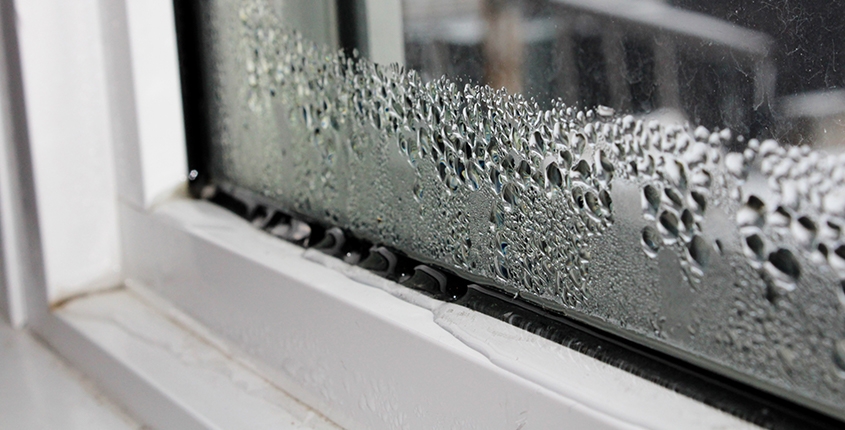Homeowner tips
Summer tips for managing indoor humidity levels
High indoor humidity levels can affect your comfort
The peak of summer heat can occur between late August and early September. Not only are some U.S. regions already starting to experience the hottest temperatures of the year; they are feeling the effects of increased humidity.
Effects of High Indoor Humidity Levels
Soaring summer heat can put a damper on outdoor activities but excessive humidity can also creep into your home and affect your comfort, your health and your property. When you lower your thermostat temperature because you are feeling overheated due to high indoor humidity levels, your utility bills can go through the roof. That’s because the damp, muggy feeling can cause you to feel warmer.
Example: If the air temperature is 75°F and the relative humidity is zero percent, then our body perceives the air temperature to feel more like 69°F. Now if the air temperature is 75°F degrees and the relative humidity is 100 percent, then it will feel closer to 80°F. (Source: HowStuffWorks.com)
Too much home humidity can also create a breeding ground for mold and bacteria that can decrease air quality, aggravating allergy or asthma symptoms. (Learn more about how to improve indoor air quality.) Excessive moisture in the air can also be the source of a myriad of problems with your home’s furnishings and even cause structural damage.
Here are some other issues caused by high indoor humidity levels:
- Poor quality of sleep
- Doors and windows stick
- Dust mites
- Wilted plants
- Smelly plants
- Peeling paint or wallpaper
So what is the best indoor humidity for your home and how can you manage it? Most experts say that the ideal house humidity should be between 30 and 50 percent, but definitely below 60 percent in the summer months.
Tips for Managing Home Humidity
- Close the doors and use the AC (Concerns about system performance? Learn about the signs you might need a new air conditioner.)
- Change air conditioner/furnace air filters
- Fix leaky pipes and faucets
- Keep surface areas dry
- Use ceiling fans to help with air circulation
- Air dry clothes or make sure dryer is vented outdoors
- Weather-strip doors and windows
- Use your outdoor grill or BBQ pit
- Keep interior doors open to increase ventilation
- Run the dishwasher at night
- Use bathroom and kitchen exhaust fans
- Decorate with humidity-absorbing plants like Boston fern or English ivy
- Use a dehumidifier
One of the easiest ways to conserve energy while also retaining and maximizing home comfort levels is to use Sensi™ Smart Thermostats’ settings and schedules. Your Sensi mobile app also displays your indoor humidity levels and sends you a High Humidity alert when your home humidity is greater than 70% so you can take steps to manage using the above tips or by calling your local HVAC contractor to check on your equipment. Stay comfortable and cool this summer!
